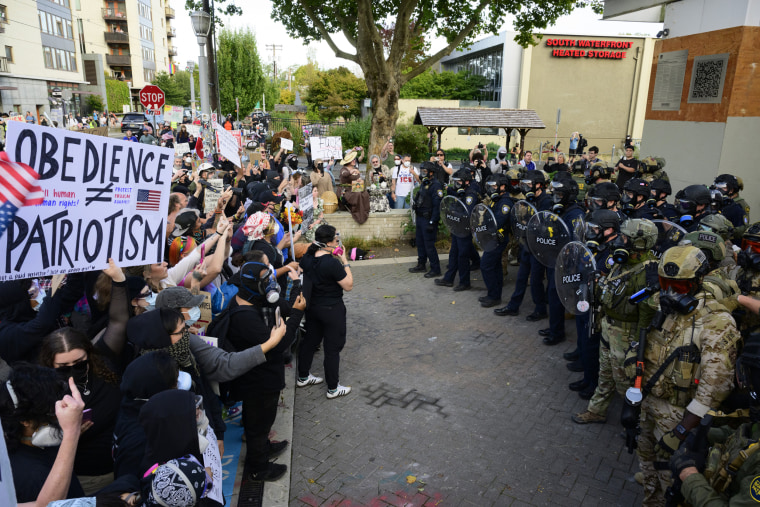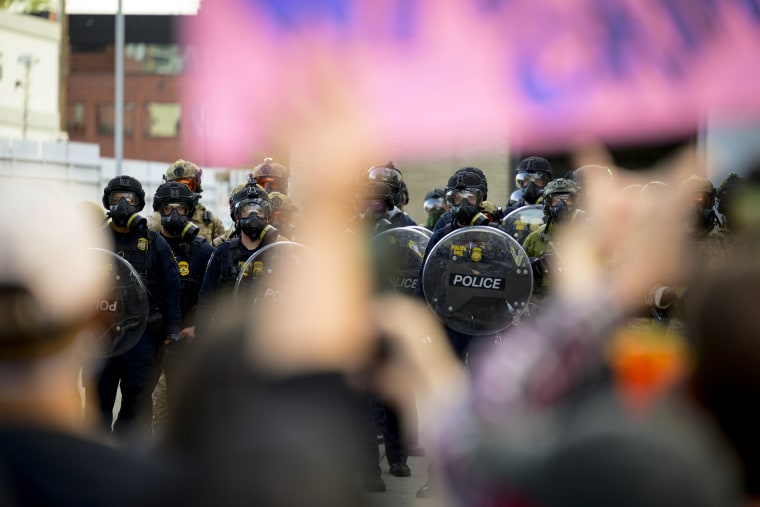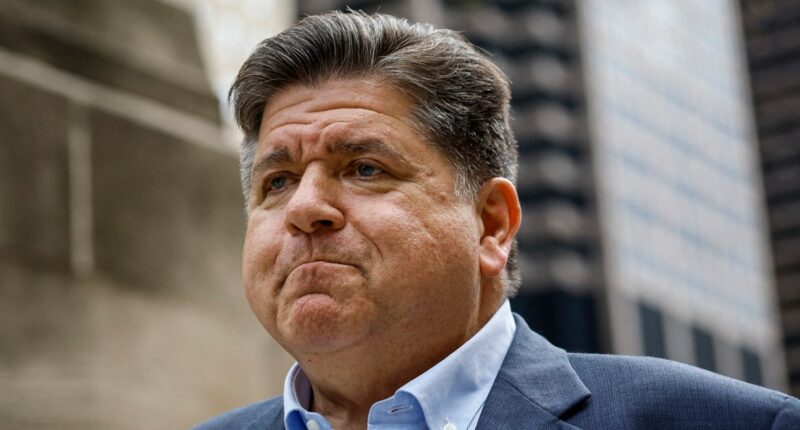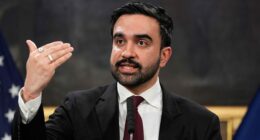Share this @internewscast.com
On Saturday, Illinois Governor JB Pritzker announced that he learned from the Trump administration about a plan by the Defense Department to mobilize 300 Illinois National Guard members for deployment in the state.
Gov. Pritzker expressed strong opposition, describing it as “outrageous and un-American” for a governor to be required to send military forces within state borders against their will. He mentioned receiving an ultimatum from Defense Department officials: “call up your troops, or we will.”
Pritzker declared, “There is no necessity for military forces to be present in Illinois. I will not deploy our National Guard to support Trump’s aggressive actions against our citizens.”
The White House and the Defense Department have not yet responded to requests for comments regarding Pritzker’s statement or the possible deployment in Illinois, though the president has previously threatened to increase federal law enforcement and National Guard presence in Chicago.
Simultaneously, the Trump administration, alongside officials in Portland, Oregon, is awaiting a decision from a federal judge about a separate National Guard deployment authorized by the president to protect Immigration and Customs Enforcement facilities in Portland.
That move activated 200 National Guard troops in Portland as part of the president’s stated agenda to curb crime in American cities.
The state of Oregon and the city of Portland have taken legal action against the Trump administration, seeking a temporary restraining order to prevent the deployment, challenging the president’s assertions that protests have been violent or uncontrollable.
The Defense Department announced that it had activated troops to support and protect federal employees and property in the Portland area while they await a federal judge’s decision in the case.
The case comes after Trump said in a social media post last week that he was directing Defense Secretary Pete Hegseth to deploy troops to Portland, claiming that the city was “under siege from attack by Antifa and other domestic terrorists.”

The president has pointed to protests near Immigration and Customs Enforcement facilities in Oregon as evidence of his claims.
“We ultimately have a perception-versus-reality problem,” Caroline Turco, senior deputy city attorney for Portland, said during a hearing in front of U.S. District Judge Karin J. Immergut on Friday. “The perception is that it is World War II out here. The reality is that this is a beautiful city with a sophisticated resource that can handle the situation.”
A lawyer for the federal government — Deputy Assistant Attorney General Eric Hamilton — pointed to isolated incidents of protesters lighting incendiary devices and throwing rocks as evidence that troops are necessary to defend against “cruel radicals who have laid siege” to ICE facilities.
Trump has deployed National Guard troops to two other American cities this year — Los Angeles and Washington, D.C. In California, the Trump administration said it sent National Guard troops and Marines to quell anti-ICE protests, while in Washington, the president said the National Guard troops were deployed to fight crime.
In early September, a federal judge ruled that Trump’s deployment of Marines and National Guardsmen to Los Angeles was illegal. Days after that ruling, attorneys for Washington, D.C., also sued to challenge the deployment of troops in the nation’s capital.

The president has also threatened to deploy National Guard troops to other American cities run by Democratic mayors, like Baltimore and New Orleans.
Trump’s decision to deploy troops to multiple American cities received renewed scrutiny earlier this week after he told senior military leaders on Monday that “we should use some of these dangerous cities as training grounds for our military, National Guard.”










